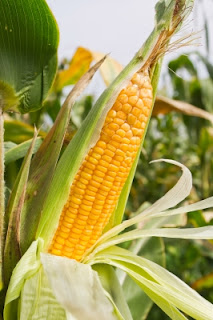 | |
| Grant Cochrane - Freedigitalphotos.com |
Introducing the Issues Surrounding Obesity
Overweight and obesity-related diseases such as cancer and diabetes are the fifth leading risk of death according to the World Health Organisation: but are we making a big fuss out of nothing?
McDonald’s has just announced its plans to introduce the option of fruit or salad with every meal ordered in its 20 major global markets by 2020.
It’s about time: the media have been calling it the “obesity crisis”. World obesity rates have nearly doubled since 1980, with U.S. and Australian citizens claiming the highest Body Mass Index of any population.
In 2011, more than 40 million children worldwide were classified as overweight.
In Britain, the increasing burden of obesity and its related diseases is costing the NHS £6bn each year.
Is it as simple as too much in, not enough out, and should people be taking more personal responsibility for their health? Overeating without adequate exercise evidently leads to weight gain, bad health and unhappiness for the vast majority of people, but there are still many that cannot strike the balance.
Being overweight and obese can affect your self-esteem and quality of life, as well as increasing your risk of obesity-related diseases.
What Causes Obesity?
The WHO defines the main cause of obesity and being overweight as an energy imbalance between calories consumed and calories expended. Globally, there has been:
- an increased intake of energy-dense foods that are high in fat; and
- an increase in physical inactivity due to the increasingly sedentary nature of many forms of work, changing modes of transportation, and increasing urbanization.
Changes in dietary and physical activity patterns are often the result of environmental and societal changes associated with development and lack of supportive policies in sectors such as health, agriculture, transport, urban planning, environment, food processing, distribution, marketing and education.
In other words, modern society encourages people to become overweight or obese because they walk less, eat more and eat worse, are not educated about how to be healthy and are the targets of irresponsible marketing campaigns. Even hospitals and schools have a long history of offering junk food or fast food to vulnerable individuals, when they should really be setting the standards for health.
Conclusion
Modern society definitely encourages over-indulgence, especially with increased access to food and inventions like television. Children who once played outside are glued to sedentary activities that set them up with lifelong habits.
However, it can’t be denied that a balanced diet that includes lots of fruits and vegetables, good carbohydrates like wholegrain rice and pasta, plus small amounts of lean white and red meat is going to be the road to health. No one has added extra salt to a raw carrot or apple sitting on the supermarket shelf, although you need to make sure you wash off the pesticides used in growing them.
Cooked from scratch, basic natural ingredients will supply your body with everything it needs to function properly and give you the best chance at fighting disease. It’s important to avoid paranoia about food and over thinking what is healthy, because this is fairly futile and wastes a lot of time. The Mini Cooking Club advocates practical cooking skills and nutrition knowledge to create a better society for all.
So get cooking! Visit this page for a list of our free cooking classes for children, pregnant women and people with mental health concerns.
Further Reading: Public Views on Food Addiction and Obesity
By Catherine Heath





